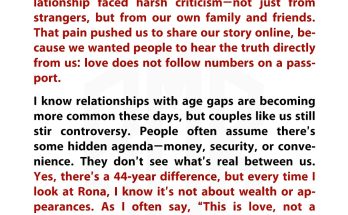If you’d told me five years ago I’d be raising twin boys alone at 63, I might’ve laughed—or cried. But after my daughter Lily and her husband died in a car crash, I became “Grandma-Mom” to Noah and Jack. We live on love, coffee, and my late husband’s pension. One scorching Sunday, our ancient fridge finally gave up. Milk soured, butter melted, and I had to toss half our food. With only $180 saved for school clothes, I headed to Second Chance Thrift, praying for a miracle. I didn’t know that miracle would come in the form of a dented Whirlpool.
At the store, I found a fridge for $120—ugly but functional. Just as I was about to buy it, a woman named Mabel tried to claim it. Frank, the owner, gently told her no. She sighed, “That fridge… it’s special.” I didn’t understand, but she let it go. That evening, the fridge hummed in our kitchen, and the boys celebrated like it was Christmas. But by morning, it made strange noises. Jack asked if fridges could have ghosts. I laughed, but something about Mabel’s look haunted me. Maybe she knew something I didn’t.
A few days later, I grabbed a screwdriver and opened the freezer’s back panel. A rusted tin box fell out, sealed with yellowing tape. On top, in faded ink: “If you found this, you were meant to.” Inside was a velvet pouch and a letter addressed to Mabel—or “whoever fate chooses.” The letter, dated 1954, explained that Mabel’s father built a secret compartment during the war to “keep hope safe.” Inside the pouch was a gold wedding band and a cashier’s check for $25,000—signed by Mabel, dated last month. My hands shook. She’d known. And she’d let me have it.
I couldn’t keep it. The next morning, I returned to the store and asked Frank where to find Mabel. His face fell. “She passed last week. Cancer. She said the fridge had something important inside and wanted it to go to the right person.” I was stunned. That night, I wrote to her family, explaining everything and mailed the check back. Two weeks later, an envelope arrived. Mabel’s son, Tom, wrote: “Mom knew what she was doing. She said, ‘If Evelyn finds it, it’s fate.’ Please keep it. Use it for the boys. And pass a little on when the time feels right.”
I cried. Not just for the money, but for the kindness. I used part of it to fix our car, pay bills, and start a savings fund for the boys’ education. But I couldn’t replace the fridge. It stayed, humming softly, a symbol of grace. Months later, our pastor mentioned a family who’d lost everything in a fire. That night, I stared at the fridge, then loaded it onto a truck, tucked the tin box inside, and drove across town. The young mother who answered the door looked stunned. “It’s special,” I said. “It helped me. Maybe it’s your turn now.”
When I got home, the kitchen felt empty but peaceful. Jack gasped, “Where’s the magic fridge?” I smiled. “We passed it on, sweetheart. Sometimes magic works best that way.” That fridge wasn’t just an appliance—it was a vessel of hope, passed from one heart to another. Mabel chose me. And now, I’ve chosen someone else. Life’s greatest blessings don’t always come wrapped in ribbon. Sometimes, they’re hidden behind dented doors, waiting for the right hands to open them—and the right heart to let them go.
